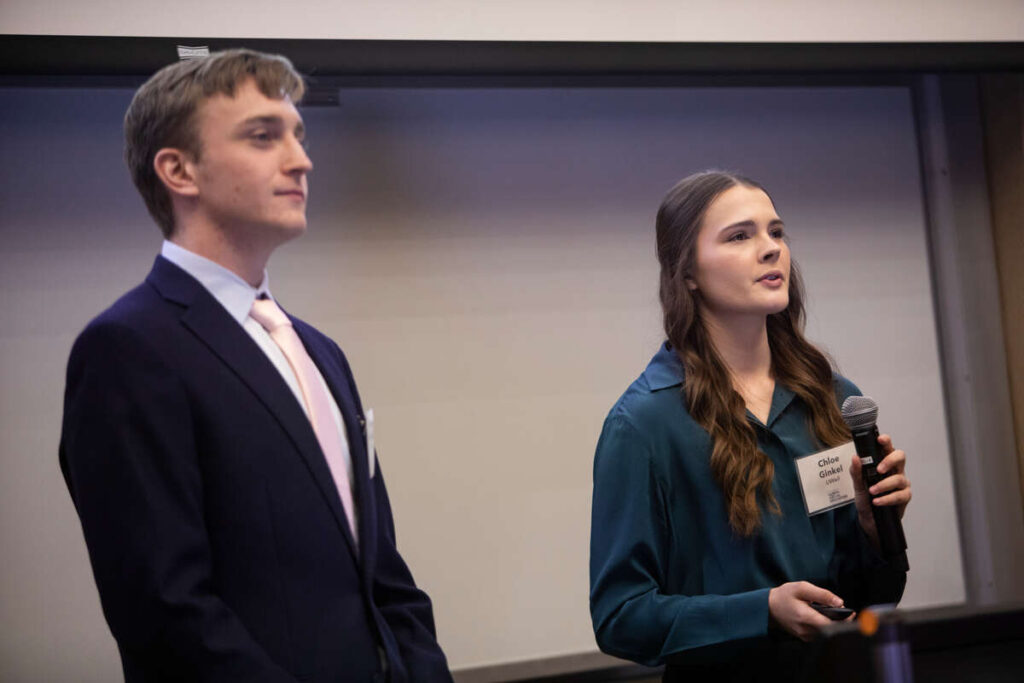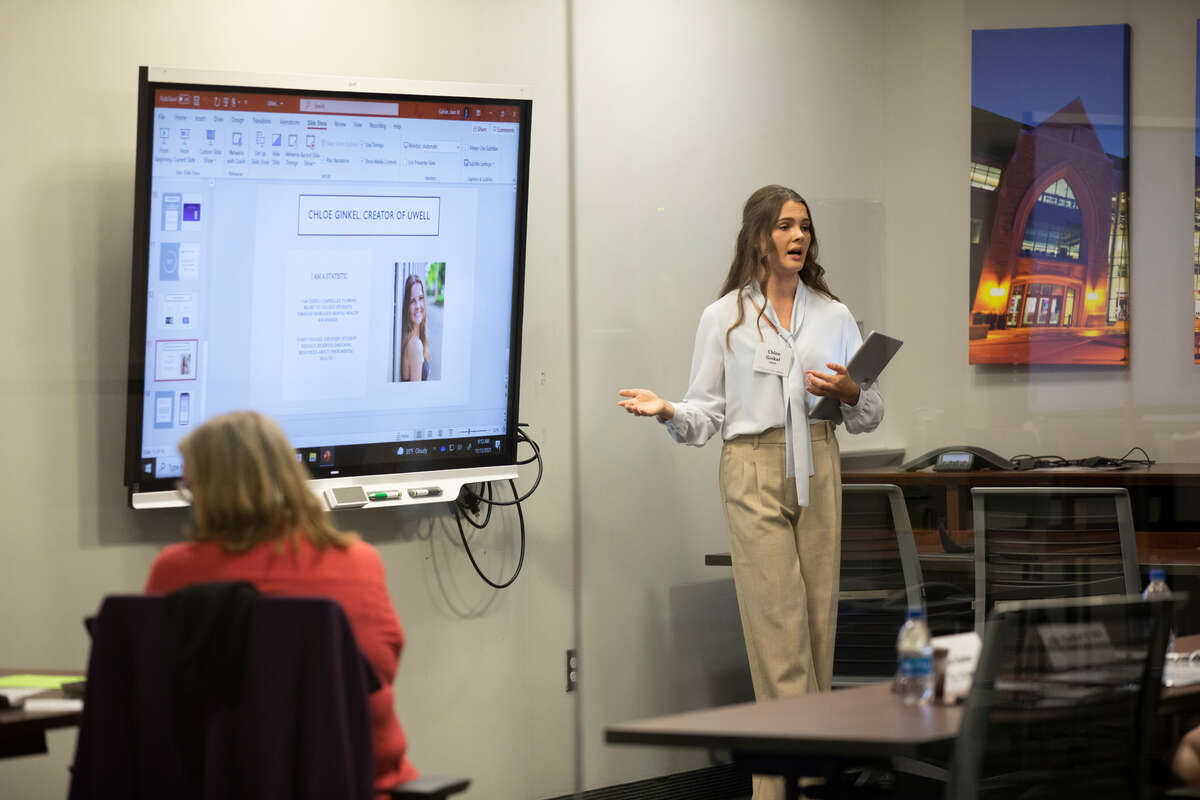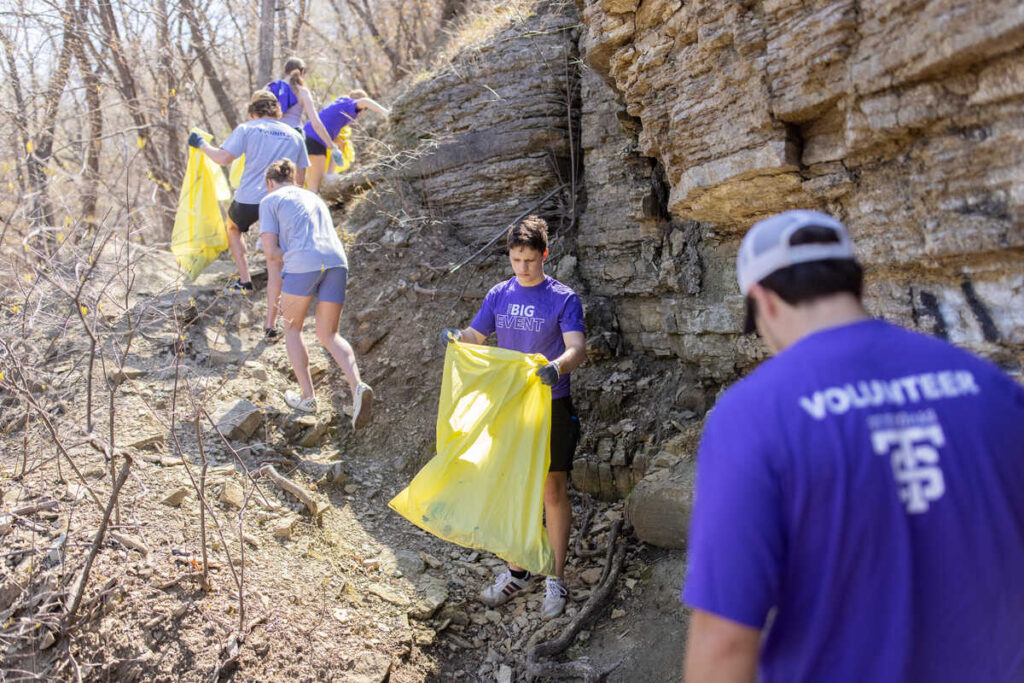Her own mental health journey in high school and college inspired UWell, which still is in the concept phase. Ginkel's vision for the app includes: an emergency contacts button that quickly connects the user with hotlines, public safety lines, crisis counseling and live chats; a personalized feed of events and wellness practices; an action center and interactive calendar; educational materials on mental health; communication functionality within groups; and connections to professional help.
UWell recently received $1,000 in seed funding at the Fowler Global Social Innovation Challenge (Fowler GSIC) Global Finals in San Diego. Another St. Thomas team, ECON Habitat Project, received $2,000.
Ginkel shared with the Newsroom five leadership lessons she has learned by participating in the entrepreneurship competitions.
Open your arms to feedback and be willing to make changes.
Although some changes pushed her outside of her comfort zone, Ginkel said that embracing feedback teaches adaptiveness. “St. Thomas does an incredible job of providing mentors for students, and they taught me so much,” she said. “They are so experienced, and it is essential to take their advice.”
The networking that Ginkel was able to do because of the competitions provided ample opportunities for feedback. For instance, she met Jasmine Jirele ’96, the president and CEO of Allianz Life Insurance Company of North America, at the Fowler Business Concept Challenge last November. The UWell team also was able to talk with a suicide hotline operator at the (Fowler GSIC) Global Finals.
Share your personal connection to a social venture and listen to others’ experiences.
“I have battled with mental illness for years, which inspired me to address this venture, but it was so essential for me to listen to feedback from others, their stories, and how they picture a future where their mental health is taken care of,” Ginkel said. “Listening to all these different perspectives, stories, and opinions helps to bring so much more to your concept.”
Throughout all the competitions, other students provided many tips regarding UWell. In San Diego, Ginkel received many insights from fellow student entrepreneurs, such as the Mexican team behind unlimited clothing closet SOCA Exchange.
Learn the importance of collaborative skills.
When Ginkel won the social venture track of the Fowler Business Concept Challenge, she had envisioned UWell as a nonprofit. Fellow entrepreneurship major Carter Rieckhoff ’24 joined her this past January and provided reasoning to change the approach to a for-profit model.
“I asked him to join my team because of his business experience [with family business Almost Famous Popcorn], and we found that his strengths were in market research and finance,” Ginkel said. “He was able to manage that piece while I did the rest and we really complemented each other with our talents and skills, which took UWell to a new level.”

Lead with a mission statement and strong values.
The UWell mission statement is, “Turning college into a more enriching and developmental experience and recognizing everyone’s unique mental health journey.”
“I knew I had a burning passion to increase mental health awareness and education, but putting it into words for UWell’s mission statement drove me further,” Ginkel said.
Given that one in two people will be diagnosed with a mental disorder/illness in their lifetime and that 75% of these people are between 18-24 when diagnosed, Ginkel wanted to explore what college students need to thrive.
Learn resiliency.
For the competitions, Ginkel and Rieckhoff had to find effective ways to deliver the UWell concept in a 10-minute presentation.
“I had to do extensive research and formulate models and concepts that were foreign to me at first,” Ginkel said. “We changed [the concept] a lot, and it was uncomfortable being in those moments of confusion and not knowing what to do next. But through every problem, we prevailed through hard work and receiving help from others. We always laid a road map out for our issues and in the end, we were so proud of our work. A lot of building a business concept and model won’t come naturally, but it is so rewarding to put in the time and learn each piece as you go.”
Potential plans up next for UWell as part of the five-year plan includes: developing a prototype, pitching St. Thomas on giving the app to its students, testing the app at the University of Minnesota or another large Midwestern university, and eventually reaching at least 300 schools in the Midwest.







